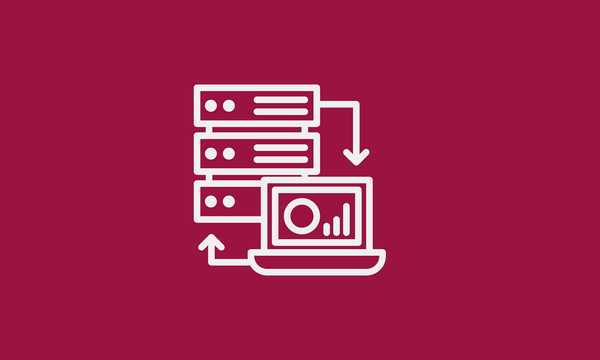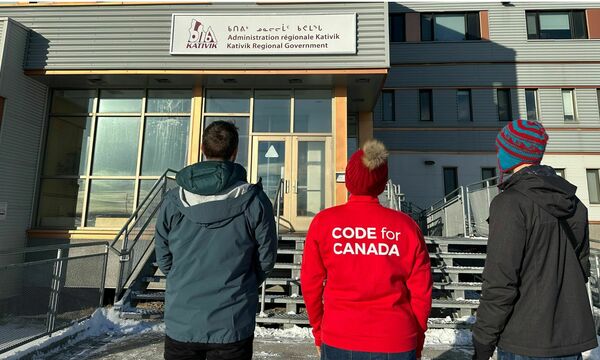Bridging the Digital Divide: Toronto Community Network

Marzie Aghdaee
January 26, 2021

The digital divide is not a new topic; yet, the pandemic and city-wide lock-downs reminded us that we rely on digital connections more than ever. Given the in-person gathering restrictions, residents are increasingly disconnected from the society they live in, and access to the internet and internet-enabled devices becomes even more crucial.
In our previous Bridging the Digital Divide blog post, we talked with the team behind the City of Toronto’s Free Wifi project. This post sheds light on the Toronto Community Network project by Toronto Mesh and their collaborators. I recently spoke to two of the core Toronto Mesh organizers, Benedict Lau and Tim Lloyd, to learn about what a community network is and why it matters to residents.
Who’s behind the scenes?
Toronto Mesh is a volunteer-led initiative sparked by the Civic Tech Toronto community back in 2016. What brought Toronto Mesh founders together was their passion for improving digital access in their home city. Although Toronto Mesh started numerous initiatives around network literacy and outreach from the beginning, as the team grew, their vision has expanded. Their current project is called Toronto Community Network (TCN) and it looks into the intersection of digital literacy and digital access.
What’s a community network?
A community network is a mesh network that’s collectively built, owned, and maintained by civil society.
“Community networks around the world aim to redefine ‘digital access’ and turn it into a ‘public good’ rather than a privately-owned commodity.”
Toronto Mesh has launched TCN in collaboration with Cisco Toronto Innovation Centre, FreeGeek Toronto, and Internet Society, and in parallel to the City of Toronto’s efforts. Toronto Mesh and their collaborators envision the TCN as a long-term, sustainable solution to the digital divide.

How do you build a community network?
Building a community network requires installing powerful antennas (supernodes) on the rooftops of high-rise buildings in a neighbourhood. By setting up smaller antennas (nodes) in the vicinity, neighbouring buildings can expand this connection in the community and weave the network.
“A community network, with 3–4 powerful sector antennas, can produce WiFi signal coverage over a 28 sq km area,” said Lau.

Currently, Toronto Mesh has installed a number of antennas in the York-Crosstown area, which enables residents in that area to connect to the internet by installing a router at their homes.
“In order to improve the network, we need to install more nodes in the neighbourhood. The more buildings join this network — and install super nodes, the more resilient the network becomes,” added Benedict.
What’s the challenge?
When we think about barriers to address digital access in the city, the first thing that often comes to mind is usually financial constraints. However, community network pilot projects across the world have demonstrated that building a community network requires neither cutting-edge, high-tech equipment, nor multi-million dollar investments; the main obstacle is a lack of public awareness.
“Residents have always been ‘consumers’ of digital access and they don’t know they can become ‘producers’. If we demystify the process and educate the public about ‘what’s the internet’, residents can step up, bring their expertise and take up a new role,” said Lau.
With more Torontonians being onboard, Toronto Mesh can expand the mesh networks to other parts of the city. Plus, residents with technical expertise can help the TCN team in the design, installation, and maintenance of mesh equipment.
“Building and maintaining a ‘community network’ is like creating a ‘community garden’ in the city, where a few residents who are interested in gardening bring their time and resources … Yet, other residents in the neighbourhood can all benefit.”
To address this public awareness challenge, Toronto Mesh is delivering a public outreach program in collaboration with the Toronto Public Library, which will be launched as early as March this year.
Want to learn more?
On Feb. 3, 2021, Civic Hall Toronto will host a public webinar, where the Toronto Mesh team will tell us more about the Toronto Community Network project. If you are curious to know how Torontonians can connect to the existing community networks in Toronto, or how you can help TCN grow, sign up for the event here.
Interested in volunteering?
Toronto Mesh values open-source tools and methods of working. Their team is always looking for engaged residents with diverse backgrounds and professional expertise. If you are interested in the TCN project and would like to learn more you can message them here, or send an email to hello@tomesh.net.
If you're excited about the potential for technology, data and design to enhance local government, then you belong at Civic Hall Toronto. We offer workshops to help civic innovators make an impact, a network of experts to collaborate on projects, and a space to share your work with an engaged community. Learn more about how you can join Civic Hall Toronto.
Civic Hall Toronto events showcase examples of civic innovation, and provide opportunities for members — and the public — to network, learn, and work together. If you’re curious and would like to attend our next event, check out our calendar here.











